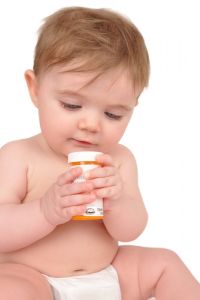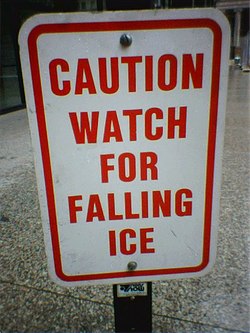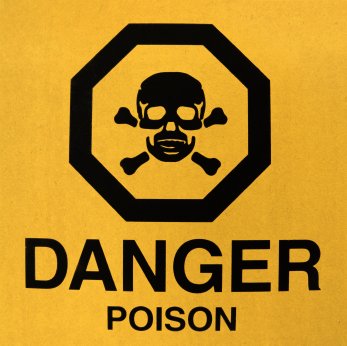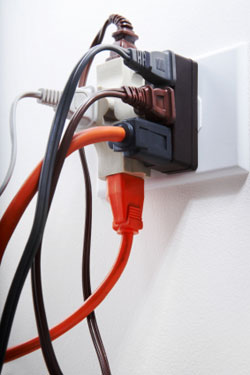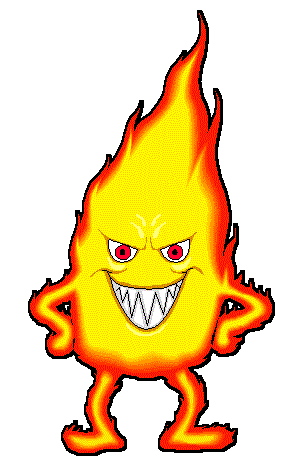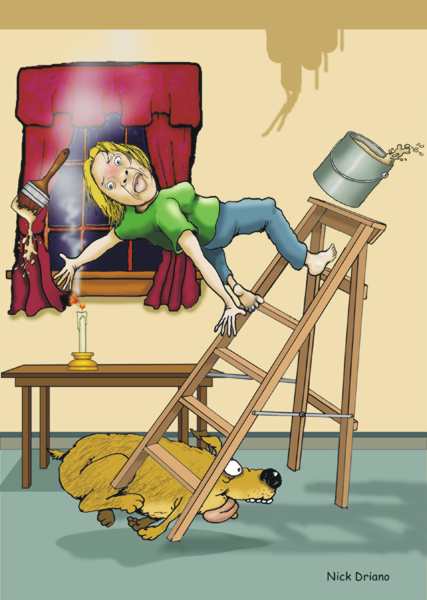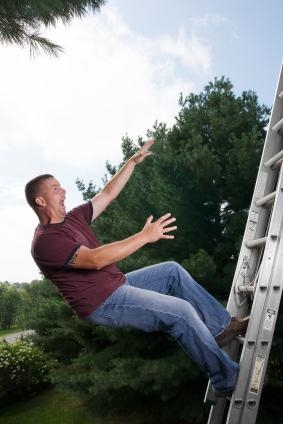 Falls are the leading cause of nonfatal, unintentional injuries, affecting nearly 8 million individuals in 2005, according to the National Safety Council’s “Injury Facts.” Many of these falls involve ladders. Because a ladder is considered a basic tool, some people may discount the dangerous nature of them. However, if proper safety precautions are not taken, ladder users can easily fall and suffer serious injuries or even death. According to the Chicago-based American Ladder Institute, the safest way to climb a ladder to avoid slips or falls is to maintain three points of contact. This means that during both ascent and descent, a climber should have either a hand and two feet, or two hands and one foot, in contact with the ladder at all times. This way, if one hand or foot slips, the climber will still be secure.
Falls are the leading cause of nonfatal, unintentional injuries, affecting nearly 8 million individuals in 2005, according to the National Safety Council’s “Injury Facts.” Many of these falls involve ladders. Because a ladder is considered a basic tool, some people may discount the dangerous nature of them. However, if proper safety precautions are not taken, ladder users can easily fall and suffer serious injuries or even death. According to the Chicago-based American Ladder Institute, the safest way to climb a ladder to avoid slips or falls is to maintain three points of contact. This means that during both ascent and descent, a climber should have either a hand and two feet, or two hands and one foot, in contact with the ladder at all times. This way, if one hand or foot slips, the climber will still be secure.
The following tips can also help minimize the risk of a fall:
- Unless the ladder is specifically designed for such a purpose, do not allow more than one climber on a ladder at one time.
- Never jump or slide down a ladder more than one rung at a time.
- Regularly clean the soles of shoes to maximize traction.
- Use towlines, a tool belt or an assistant to supply materials and tools.
- Climb ladders slowly and deliberately, avoiding sudden movements.
- Climbers should keep the center of the stomach between the ladder side rails when climbing.
- Do not overreach or lean to the side while working, as this could cause the ladder to tip.
via Safety Tip Minimizing the risk of ladder falls.
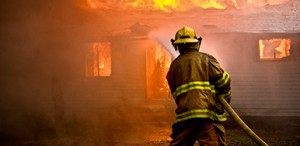 More than 3,400 Americans die each year in fires and approximately 17,500 are injured. An overwhelming number of fires occur in the home. Many are started by alternative heaters. Here are a few tips to keep you and your family safe.
More than 3,400 Americans die each year in fires and approximately 17,500 are injured. An overwhelming number of fires occur in the home. Many are started by alternative heaters. Here are a few tips to keep you and your family safe.

